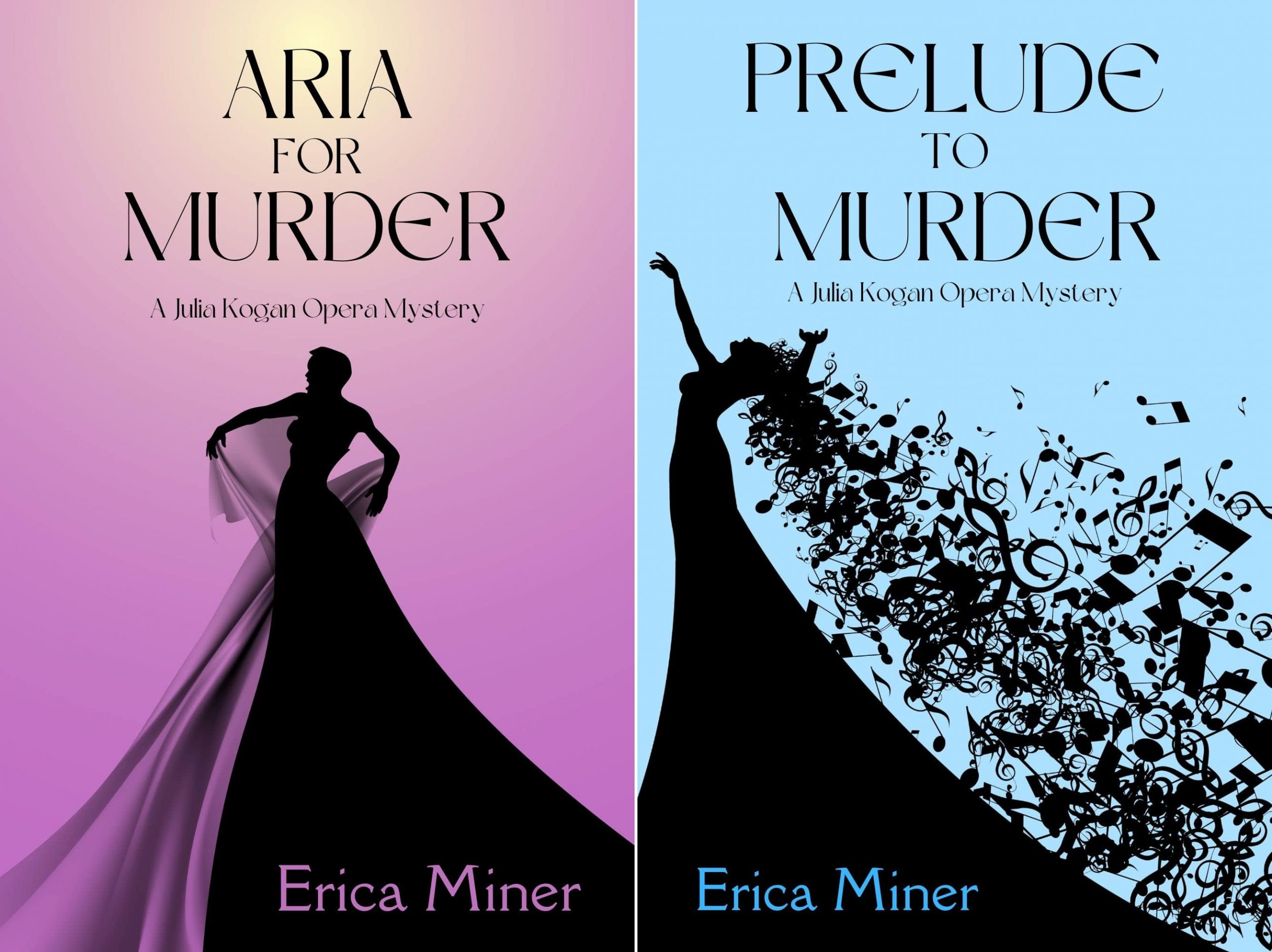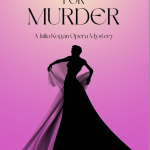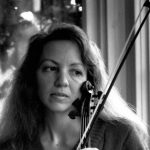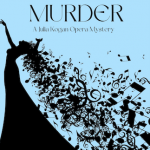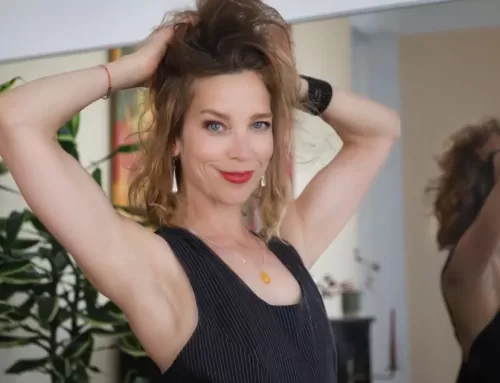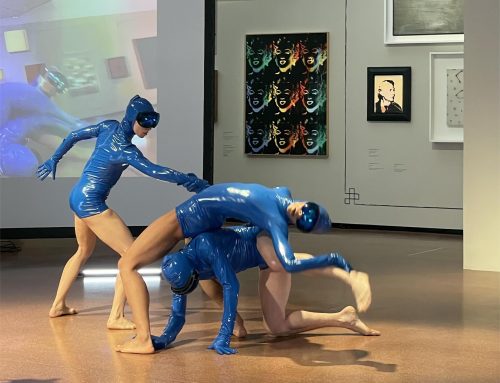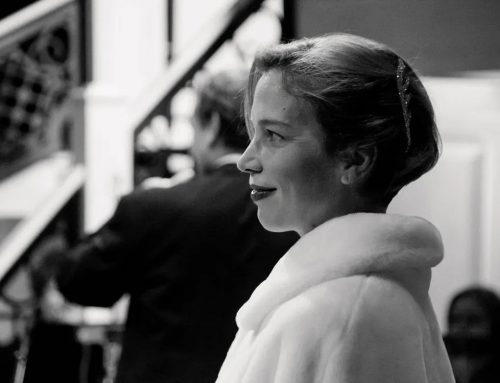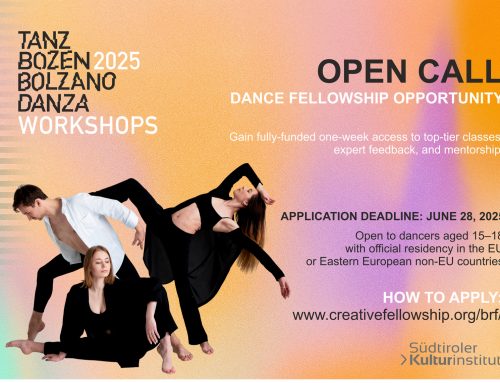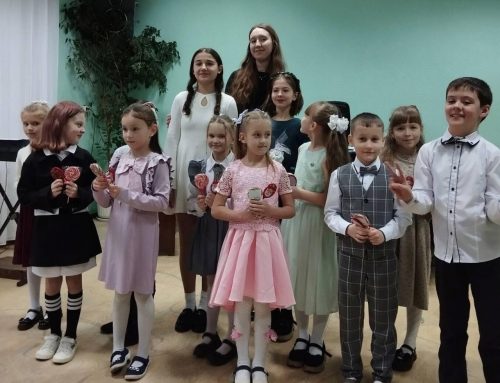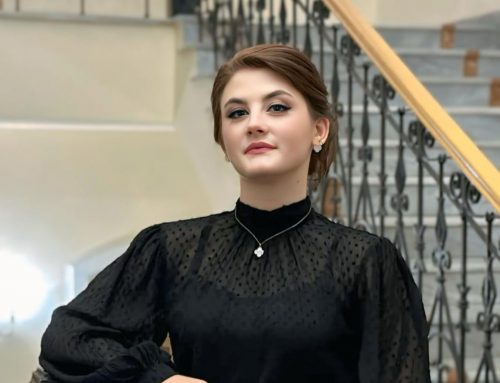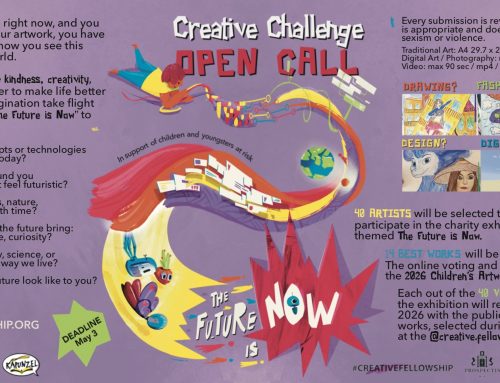 Formerly a violinist with the New York Metropolitan Opera, Erica is now an award-winning author, journalist, lecturer and screenwriter with a passion for opera. Her first opera mystery novel Aria for Murder was a Finalist in the 2023 Eric Hoffer Book Awards and inaugurated a series. Last month Erica released the sequel called Prelude to Murder. Her third book in this series is expected to come out in 2024.
Formerly a violinist with the New York Metropolitan Opera, Erica is now an award-winning author, journalist, lecturer and screenwriter with a passion for opera. Her first opera mystery novel Aria for Murder was a Finalist in the 2023 Eric Hoffer Book Awards and inaugurated a series. Last month Erica released the sequel called Prelude to Murder. Her third book in this series is expected to come out in 2024.
On World Opera Day, Eliza Skoro, our education director, joined Erica to talk about her new book, her passion for murder mysteries and the spooky world of opera houses.
Could you please tell us about yourself and how a violinist turned into a murder mystery writer?
Actually, I started writing before I started playing the violin. When I was a child, I grew up in Detroit, Michigan. We had an excellent public school system and after school programs. That’s how I was placed in a program for creative writing. I was about seven or eight years old and I don’t know exactly why some teacher recommended me. They must have seen a sparkle of something in me. Of course, it was a hundred years ago, so I don’t remember what I wrote, but I do remember loving the entire process of creating characters and plots and weaving them all together to tell stories. I discovered that I loved telling stories. I still do! So, the passion for writing was created way back in my childhood.
After that it wasn’t long before I started playing the violin. As anyone who has ever played the violin knows, when you’re a little child and you’re trying to play the most difficult instrument, you have to really be committed and devoted to it entirely. So, writing kind of fell off a little bit during that time. But I kept writing whenever I could. In high school I journaled all my experiences every day and in fact those journals ended up being the basis for one of my early novels. Even when I was at the Met, I would take writing classes whenever I could fit them into my schedule. After I left the Met, going back to writing seemed to be a natural step. It was what I loved the most and that’s how that happened.
As far as being a mystery writer, while I was at the Met, there were a few, let’s say, myths about happenings and events that went on. My imagination started going to places that would be interesting to embroider on this whole idea of something happening and turn it into fiction. That way I could write a mystery that could take place at the Opera where anything can happen. You know what happens on stage is sometimes not as dramatic as what happens behind the stage. Behind the scenes there’s so many dramas going on! That all just kind of escalated and the next thing I knew, I was writing my first opera mystery.
Our previous guest author also was a violinist who wrote a detective novel. Is there something special about violinists?
When you ask a violinist if there’s something special about violinists, of course we’re going to say yes. I personally am totally biased. I think the violin is the most beautiful instrument. Also, the most difficult to play. There are more violinists in an orchestra than any other instrument. Somehow violins are extremely important. Often, we’re playing the melody at the very top of the range of all the other instruments. So yes, I do think that violinists are special. I think also because the instrument is so difficult and we spend so much time trying to attain perfection in playing it, it translates into fabricating stories.
We spend a lot of time at the Met, especially when we rehearse endlessly. The process of rehearsals is like starting and stopping, starting, and stopping all the time. While the conductor is working with another section in the orchestra or with the singers on stage, your mind wanders to what can I make out of this. I always had my own story in mind whenever I was relating to the story of the Opera. I think that a lot of violinists just think in those terms. What we play is very very detailed and the way we think is also very detailed. That’s kind of the way it feels to me.
Could you please tell us a bit about your new book and, since there are a lot of references to your first book in this new novel, about the first novel too?
The new book is called Prelude to murder and it’s the sequel to Aria for Murder which was the first book in this series. The first book took place at the Met and the second book, the recent release, takes place at the Santa Fe Opera. The reason I make a lot of references to the first book in the second book is that a lot of people would not have necessarily read the first book. I wanted to give a little background so that they would know just enough about what happened in the first novel and understand everything that’s happening in the second novel.
The reason I decided to set this book at the Santa Fe Opera was that one of my readers who really loved the first book asked me if I was going to write a sequel. I said I hadn’t thought about it and he said he was a a big opera fan and that I should write a sequel and set it at the Santa Fe Opera.
The Santa Fe Opera is one of the most fantastic opera places in the world. It’s a Summer Festival that lasts over the three months of summer. The founder of the opera company, John Crosby, was told that he was crazy to start an opera company in the middle of the desert. They said no one was going to come. In any case John Crosby was determined. He worked himself to the bone to create this company. He knew enough about opera and enough about producing opera to get all the best people to come and work for him. They built this outdoor theater right between two very mysterious mountain ranges. One of them is actually called the Blood of Christ. The history of the Spaniards and the Native Americans and everything clashing – it’s all a part of the atmosphere of Santa Fe New Mexico. They call New Mexico the land of enchantment for a good reason. It’s an amazing place!
I had never actually been there so once I decided that that’s a really good idea, I went out to Santa Fe. Luckily, I knew some of the higher-ups in the company who got me access to backstage and introduced me to the people who worked there, who took me on tours around the opera house. I also toured in the countryside to get a sense of the atmosphere.
Then my wicked imagination just went to work, and I started thinking of all the nefarious things that could go on at the Santa Fe Opera and I thought it would be a good segue for Julia, the main character in the series. She is very young and very talented, she proved herself at the Met. Santa Fe is a Summer Festival and the Met is off in summers so many of the people in The Met Orchestra goe to Santa Fe to play in summer. That was a believable plot point that she would be hired to go play at Santa Fe. But, of course, wherever she goes she gets into trouble. That’s how that all began. It started with the Met and then she goes off to Santa Fe and murders start happening there. It’s just a lot of fun. I wanted to make sure readers would know enough and those who know a little bit about Julia and her background, and what had happened at the Met in the previous book, they could then go on and understand everything that was happening in the second book.
For a violinist you know quite a lot about how murder investigations work. Did you have any advisors, or does it all come from watching TV series?
Both, actually. When I decided to write a murder mystery, it was a genre I had never written before. So as it happened, I was in a special class in New York when I was still at the Met. I started taking screenwriting classes when I decided I wanted to write this murder mystery. Aria for Murder actually started off as a screenplay. I started talking to people, who knew about what is needed to go into writing a mystery. I didn’t realize at the time that it’s really the most difficult genre to write. So I started studying everything I could find on the internet about writing mysteries. I joined writing groups, and I went to police stations and talked to whoever would talk to me (not many). Coincidentally, in one of my screenwriting groups there was an actual probation officer for the New York police department. So, he gave me a lot of hints and a lot of background. I just filled my head with as much mystery lore as I possibly could and of course I read a lot of mysteries because inevitably that’s the best way to learn about the genre. I read the great writers like Agatha Christie, and I just kept learning as much as I could. Of course, I watched a lot of TV series, and I got some ideas about the background. It’s one thing to read about the mystery genre and another to actually watch people. Even if it’s fictional, to watch characters involved with each other and see what the procedure of investigations is gives you a lot of ideas. You notice all of these kinds of things that you absolutely have to know to write a mystery. This is an ongoing process. I’m learning more and more all the time. It’s a very very difficult genre. Everything has to fit together perfectly. Back then I didn’t know what I was getting into, but it turns out that I really love it.
Going back to the book, I would like to ask you if Diva behavior is still common for opera singers or is it just a stereotype?
I wouldn’t call it a stereotype, because I have encountered a number of Divas at the Metropolitan. I think the whole idea of being a Diva has definitely toned down enormously since the times of Maria Calas and Renata Taldi.
Back in the mid to late 20th Century it was almost expected that a great soprano or a great mezzo would behave in a certain way. Little by little that became less and less prevalent. All these great Divas, they knew they were great, and they had very large egos because they were at the top of the scene. That kind of behavior is frowned upon these days. The competition for the opera world, especially when it comes to sopranos, is very high and you can’t get away with that kind of behavior the way you used to. Now it’s really rare, it almost never happens. They don’t feel they have to prove that they are Divas. They just have to give their best possible performance because that’s what is expected of them and be very good at it.
I think it’s kind of joy to write about those because they make some great characters. I base a lot of that behavior in Prelude to Murder, the one particularly detestable, on my past experiences of watching these Divas on the stage and seeing them backstage as well. It’s fun to write these characters but it’s fiction so you always should keep that in mind.
Why did you choose to make Magda Hungarian?
That’s kind of interesting. One of my favorite things about writing fiction is creating characters and naming them. Magda being Hungarian happened because I was trying to picture someone at the Met who I knew. She was very colorful. I think she was a wig mistress at the Met. Her name was Magda and she was Hungarian. She wasn’t anything like the character in the Prelude to Murder. She was very sweet and very kind and she was always very nice to me even though being in the orchestra I didn’t have any direct dealings with her. She was just a lovely person. I had some very, very close friends in the Women’s Chorus who were very fond of her. I thought the fact that she had a Hungarian accent was very charming and Magda was a great name for a character. Coincidentally I had an aunt who was also Hungarian and I kind of put these two in one. This is what you do to create a character, I take characteristics of many different people and I combine them together into one.
Then I had to start asking people I knew who spoke Hungarian to translate some phrases for me so that the text could be somewhat authentic. Although I tried not to use too much Hungarian. They advise not to use too many foreign languages in your writing. At least that’s what my publisher always told me. I was like, well that’s hard to do in a book about an opera! I learned a few phrases of Hungarian and I sprinkled them in.
Is it true that costume directors do not come much to their rehearsals?
In reality, this is the opposite. I learned it at Santa Fe because I was lucky enough to spend a lot of time with the costume director there. Her name was Missy West. I knew her from living in San Diego. She is absolutely brilliant in what she does. She took me on a tour of the entire costume department and explained in detail every aspect of it. It was fantastic.
She explained to me that, as a matter of fact, costume directors need to come to rehearsals. It’s very important for singers that their costume is comfortable, fits properly, looks good and makes them feel good about themselves. The best way to do that, aside from, of course, the obvious fittings before the costume is built, is for the costume director to come to the rehearsals and watch and observe and make sure that each singer is comfortable in their costume. If not, they have to make adjustments. I can’t tell you how many times there have been breaks from rehearsals where I’ve stayed around and watched the stage and I could see even during the rehearsal itself, not just the breaks, where the costume director would have to rush on stage and make an adjustment or something would rip. Anything can happen with a costume as anything can happen with an opera.
Why is Stella not so friendly with Julia from the very beginning?
Stella is the Santa Fe Police Department detective, a detective who is on the case when the the first murder happens. Detectives are naturally suspicious because it’s their job. The first thing they need to do is to investigate and find out what happened and figure out who did it.
It’s just a natural part of the investigation. I think that as a professional that’s the way she was taught in her training at the police academy, be naturally suspicious, suspect everyone, everyone is a potential perpetrator. That’s why she’s not very friendly with Julia, even though Julia is a very appealing character. She is a genuinely caring person, and she means well in everything she does. But Stella, who’s just come on the scene after a violent murder has taken place, has to be suspicious of Julia and everybody else. I won’t give away what happens later but this relationship does change and in any really good story you need these relationships to change. It is called “transformational arcs” in writing, the progression of character as the characters change and they kind of change together.
I really had a lot of fun creating her. You know, she quotes Shakespeare, and who does that? Stella is not just suspicious and not friendly to Julia. She is that way with everybody in the company because everybody is a suspect.
Where does this saying “Opera kills” come from?
I have a graphic that explains it. On one side there is a list of operas: Tosca, La Traviata, Madame Butterfly, Carmen, Tristan and Isolde. On the other side, opposite every single opera it says: she dies. Tosca dies, Traviata dies, Madame Butterfly dies. I thought that was kind of cute and clever. I’ll tell you a story. Recently somebody told me that they had gone to an opera rehearsal and the soprano was singing her death scene. The Soprano’s 12-year-old son was sitting at the back of the room watching. My friend went up to him and asked what he thought about his mother’s death scene. And the kid replied: “It’s opera. Everybody dies.” In opera death can’t be avoided. Of course, there are comedies, but when you think of Traviata and Madame Butterfly and on down the list, the idea that opera kills comes naturally.
Opera is a drama and inevitably the most dramatic thing that makes people cry, that evokes these emotions that only opera can do, is a tragedy. The tragedy is that a character that you’ve become engaged with for the past three hours at the end either kills herself or someone kills her, or she dies of tuberculosis or something terrible like that. So, that’s where the whole idea of where “Opera kills” originated from.
It is really convenient for me because that’s what my opera mystery books are all about. Not only does it happen on stage, but it can happen backstage or somewhere else in the opera house. Opera can indeed kill. My thing is bringing murder and music together so at an opera house anything can happen, it’s the perfect environment for a mystery.
Do you think after all these adventures would other Opera Houses be willing to employ Julia?
She is such a brilliant violinist! She was a child prodigy, and she plays magnificently. She proves herself at Santa Fe that she can lead an orchestra; they hire her as the Concert Master, which is the first of the first violinists, so she proves she can lead an orchestra. She proves that she can also find out who murders people. I think, she’s kind of an ideal combination, but mostly because of her violine playing.
In the next book she goes to the San Francisco Opera, there are a couple of new novels in the planning stages after that, so yes, she is certainly employable. Violinists of that caliber are not that easy to come by. Plus, she is such an intensive worker! I mean she studies the libretos for all of the operas that she plays so she can know what’s going on in the story and then translate that into the best playing she can possibly give. She is also my protagonist, so of course other opera houses have to employ her! They don’t have any choice.
How likely is it that anything like these crimes could happen in one of the major Opera Houses?
I think it’s quite likely. Unfortunately, there actually was a murder at the Metropolitan Opera back in the 80s. It was not during the opera season. It was in summer, during the ballet season. Those tragic circumstances have nothing to do with what I wrote. But it can happen. It’s not very likely, but it’s fiction. So, the fact that an opera house can be a very dangerous place and certain things have previously happened makes the probability higher.
For instance, in the past a person in the audience committed suicide by leaping off the top balcony in the middle of the intermission; someone once collapsed of a heart attack on stage during a performance because the director had him singing from the top of a 20 foot ladder and he had fear of the heights and just fell and and died right there in front of 4,000 people; one other person in an opera company was having death threats. When you know that things like that happened, all of this stuff just goes into my writer’s mind and becomes fiction. Anything can happen at an opera house. It’s not like it ever really happened, but as a fiction writer I like to create these plot lines and make them as believable as I can. I put them in a very real environment of a place that I know very well and then it all just kind of comes together. A murder can happen anywhere, in a small town in in the English Countryside, so why not in an opera house where tempers flare and egos clash. You never know what murderous feelings people could be having about each other.
I have this wicked imagination and I put it all together creating fiction and I think that it works. People seem to really enjoy reading mysteries because a) almost everybody loves a mystery and b) there are a lot of opera lovers out there who like to read about things that go on behind the scenes which most people don’t get to see.
Full interview here

